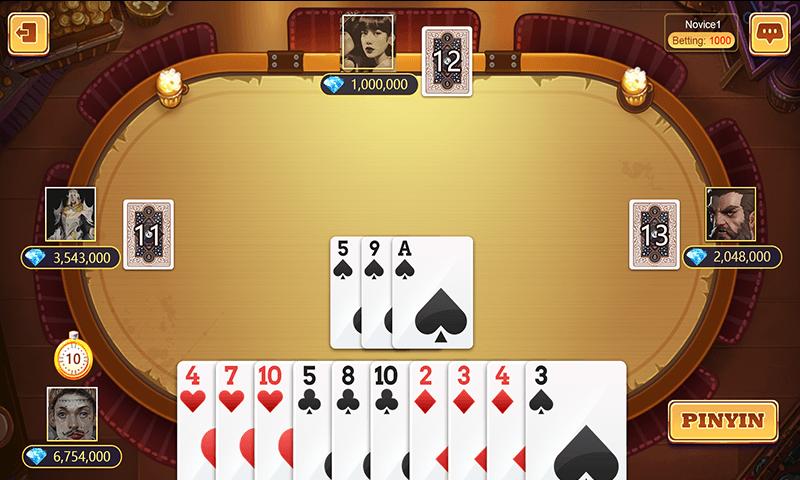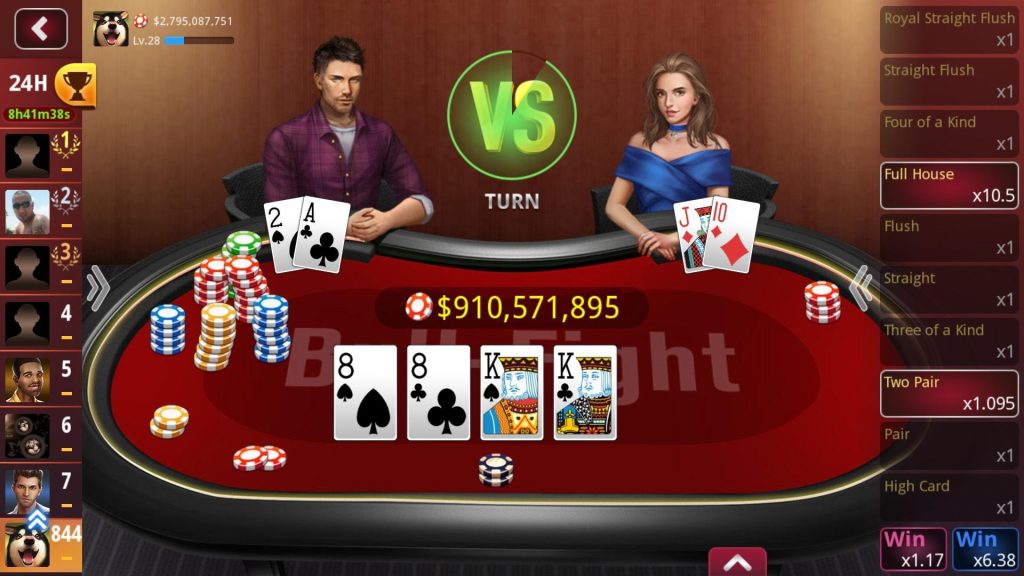Many gambling games depend entirely on chance, leaving no room for the player to influence the outcome. The poker simulator stands out favorably: it combines the mechanics of classic poker with the dynamics of slot machines, providing the opportunity to make decisions based on logic and probability.
Our guide on how to play video poker is designed for those who want to start their journey in the discipline consciously — with an understanding of the basic principles, calculations and without unnecessary risks. This approach allows you to form a stable strategy and feel confident even at the start!
Why should you start with video poker?
Unlike roulette and slots, video poker does not require instant reactions and does not force players to make mindless bets. Instead, players are given time to think about their decisions. With the right strategy, knowledge of the rules, and basic analytical skills, video poker becomes a game where winning depends not only on luck but also on preparation.

Video poker is an excellent choice for those who want to learn how to make decisions under pressure, manage their bankroll, and play consistently. This is a universal school for future poker players, or just a good platform for earning money in online casinos.
A Guide to Playing Video Poker: The First Steps
 To understand where to start, it is important to understand the structure of a single game session. Video poker from scratch looks like this:
To understand where to start, it is important to understand the structure of a single game session. Video poker from scratch looks like this:
- A bet is placed (usually between 1 and 5 coins).
- 5 cards are issued.
- The player chooses the cards they want to keep.
- The rest are discarded, and new ones take their place.
- The resulting combination is compared to the payout table, and if there is a match, the player wins.
Beginners are recommended to start with the basic version, Jacks or Better, where the minimum winning hand is a pair of jacks.
Basics: cards, combinations and rules
The rules of video poker are based on classic poker hands. All hands are ranked from the strongest to the weakest: royal flush, straight flush, four of a kind, full house, flush, straight, set, two pair, and one pair, with Jacks or Better only counting hands with jacks or higher.
Understanding your hands is key to making the right decisions. If you don’t know which card to discard, focus on the potential value of the remaining cards. This approach is particularly important for those who are just starting to learn the rules and are looking for a comprehensive guide on how to play video poker.
Types of Video Poker: Where is the Best Place to Learn?
A guide on how to play video poker includes understanding not only the basic rules, but also the different variations of the game. Each version adds its own unique feature, such as a joker, wild cards, higher payouts for rare combinations, or even bonus modes.
Popular variations include Jacks or Better, Deuces Wild, Bonus Poker, Joker Poker, and Double Bonus Poker. For example, in Deuces Wild, all deuces become wild, increasing the chances of forming a winning combination while also making the winning conditions more challenging.
Jacks or Better is the best video poker game for learning, as it is a classic, balanced, and intuitive option that is perfect for beginners.
Tips and strategies: How to avoid losing in the first few days?
Before you start playing for money, it is important to master the fundamental principles. Here are some tips to help you avoid mistakes:
- don’t start with the maximum bets — practice your decisions on low limits first;
- always study the payout table, as it determines the long-term profitability;
- never leave a joker or a two without a purpose — the wild card must be part of a strong combination;
- if there is no pair, leave an ace or a king to get a chance at a strong pair;
- don’t try to guess the outcome; think in terms of probabilities.
Tips form the basis for subsequent success and help to develop the thinking necessary for the game.
Mistakes to avoid
A guide on how to play video poker would be incomplete without analyzing common mistakes. Many players lose money not because of a bad hand, but because of poor decisions.
Often, beginners discard a winning combination in the hope of getting something stronger, do not use the paytable and play intuitively. Others apply the same strategy to all versions, ignoring the presence of wild cards, or start the game in an unfamiliar mode without knowing its features.
A particularly dangerous mistake is when a player doesn’t limit their bets and loses everything in a couple of sessions. If you’re serious about learning how to play video poker for long-term success, it’s important to analyze each failure and learn from it!
How can I learn to play video poker and make money?
Learning the theory is the first step. But without practice, it will not give anything. To move to profit, you need:
- start playing online casinos for free;
- practice a specific video poker strategy on a single variation;
- gradually increase the limits and work on the psychology of the game;
- study game reports and draw conclusions about errors;
- control your excitement by playing only within pre-set limits.
This approach fosters discipline, reduces losses, and makes the game more meaningful.
Which cards should you hold: tips for a successful game
The guide on how to play video poker covers not only the rules, but also the basic principles of making decisions in each hand. Knowing the typical situations and the optimal behavior in them significantly increases the chances of success.
If you have a quadruple, full house, or flush, you should hold them completely. If you have a triple, it is recommended to keep the combination and discard the two remaining cards. Two pairs are also kept, and one card is discarded. A pair of jacks or higher is the minimum winning combination in Jacks or Better, and it should be kept.

If you have four cards to a flush or straight, it is wise to add a fifth card, as the probability of completing the combination is quite high. In the case of three cards to a royal flush, despite the low chance, the potential win justifies the risk.
These decisions form the basis of an effective strategy, especially in the early stages of learning video poker.
Why should you trust the strategy?
 Digital poker is not a pure game of chance. Unlike roulette, it allows players to think strategically, plan their moves, and improve their skills. It is not just a random distribution of cards, but a continuous process of decision-making. While a guide on how to play video poker is not a one-size-fits-all solution, it serves as a reliable starting point for further development. The outcome depends on regular practice, analysis of one’s own actions, and a commitment to growth.
Digital poker is not a pure game of chance. Unlike roulette, it allows players to think strategically, plan their moves, and improve their skills. It is not just a random distribution of cards, but a continuous process of decision-making. While a guide on how to play video poker is not a one-size-fits-all solution, it serves as a reliable starting point for further development. The outcome depends on regular practice, analysis of one’s own actions, and a commitment to growth.
It is recommended to start with one version of the game, focusing on correctly evaluating each hand and gradually building a personal strategy. This approach will allow you to feel confident at the virtual table over time and make informed decisions based on your knowledge of the mechanics and your own experience.
 en
en  ru
ru  de
de  ar
ar  es
es  nl
nl  fr
fr  it
it  pt
pt  hi
hi  el
el 









